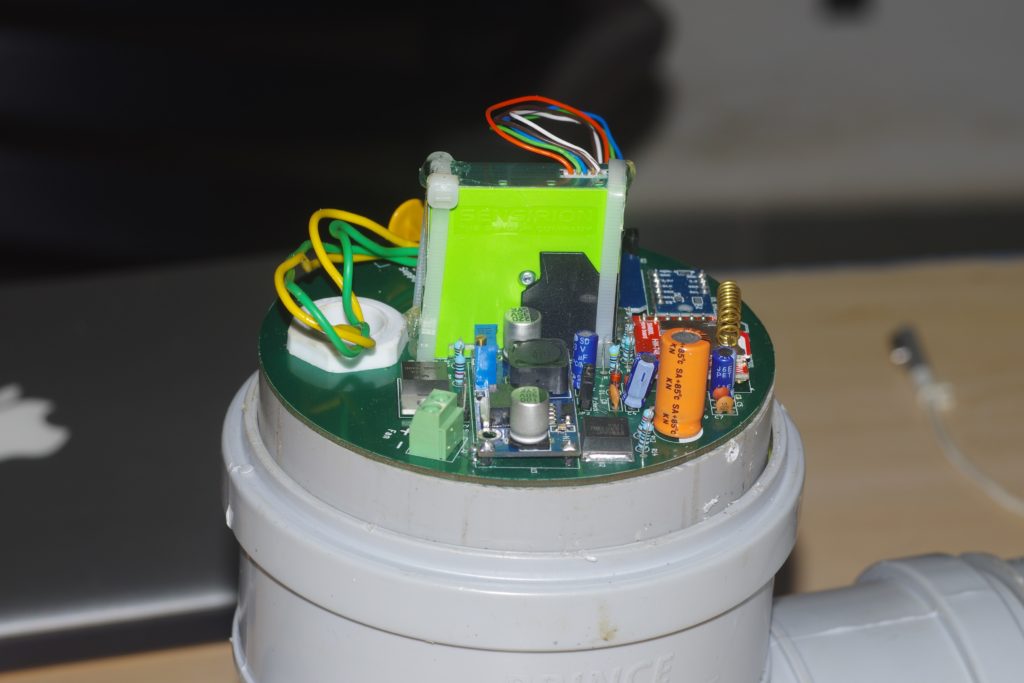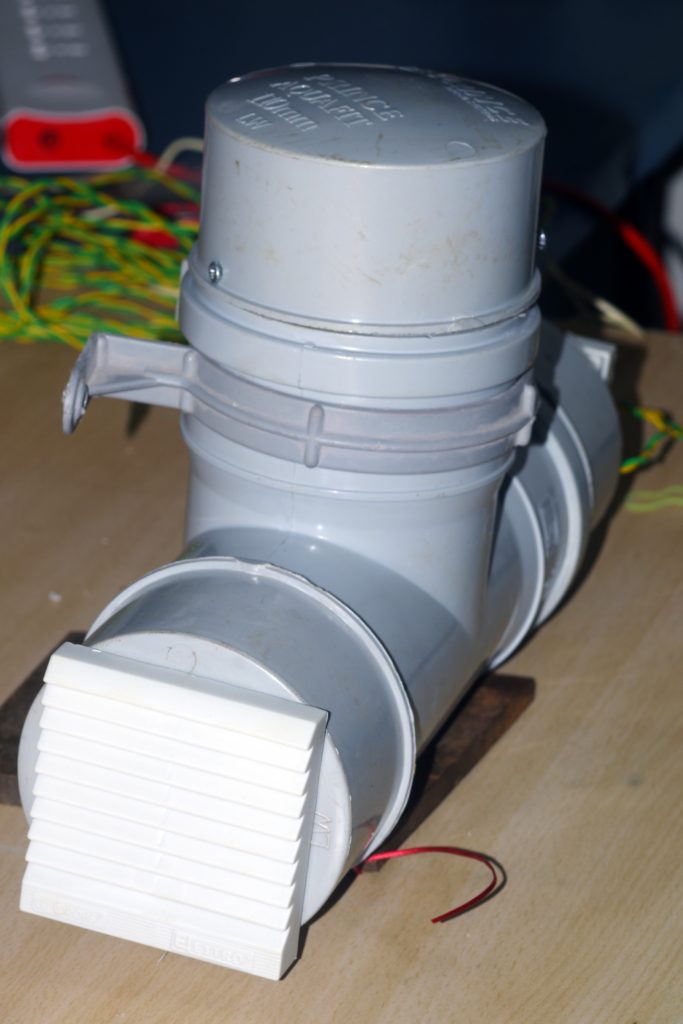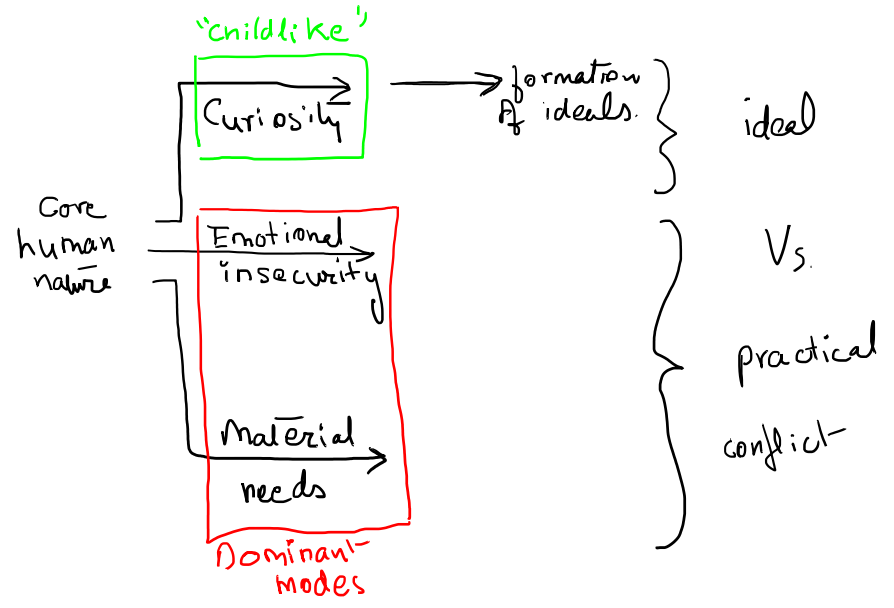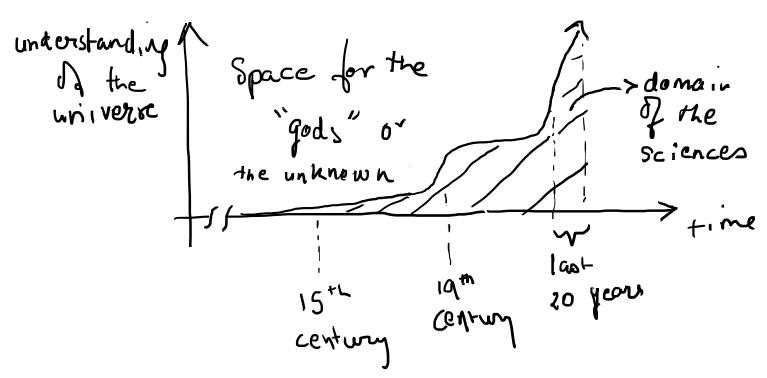Motivation
So we discussed why we can consider a scientist to be powerful and if so then morality becomes something of concern. We also saw how if a scientist’s work and some of life’s most important things (status, dignity, social value) depend on who funds it, the scientist becomes a tool at the hand at the funding body. So on one hand a scientist can have immense power (power of knowledge and sanction of society to discover and disseminate more + a growing number of people look up to them for direction and purpose and as heros) and on the other can become a stooge of the funding – that could be a situation that can lead to many problems. In this session, we explore one such scientist, Albert Einstein, who was great in his own right but also thought about the society, repeatedly showed that he was self-aware of his cult – an intellectual example for many – all the while not playing stooge to anyone.
Session
science and morality 2- First we begin by discussing the significance of Einstein
- Most of classical world was already pretty set. Our day to day experiences do not require any more than the classical physics of Newton and Maxwell and basic non-statistical thermodynamics.
- However, there were outliers which the physicist could see and could not explain with the classical physics. There were patchy jobs made to explain some, but then patch job is a patch job – example:
- How blackbody radiation was dealt with before Max Planck’s quanta theory – the Rayleigh-Jean’s laws that could explain the radiations at larger wavelengths but could not account for the complete blackbody radiation spectrum as one went to shorter wavelengths.
- Light, when treated as a conventional electromagnetic wave was by theory required a medium through which the electric and magnetic fields could express themselves and pass on. This was a heavy argument which was much debated upon but could not rejected either for the want of a better theory. See Luminiferous aether.
- In this vacuum of the world awaiting a paradigm shift (T.S. Kuhn’s Structure of Scientific Revolutions), in 1905, a 26 year old patent office clerk publishes 4 papers in a german scientific publication, single authorship. Using my scant knowledge about the content of the papers, i skimmed through it only on the surface – enough for a class of snoozing art students (those who did not fit into this category soon changed their minds). But one can read in-depth online, even on Wikipedia! This slid further lists some other achievements of Einstein.
- The scientific storm Einstein created shook the world. But many argue that the time was such that a hero was made out of Einstein. This fellow, obviously great in his subject was not understood outside – sign of a potential genius candidate. He also fitted the underdog hero that everyone wants to be and so that could also have made him famous. However, the question still remains, why? Why so excessively famous that even now we consider him one of the greatest of scientist for sure, but also one of the greatest intellectuals?
- Comparing to other contemporary scientists, who were also great minds and achieved equivalent (if there were a way of comparison) breakthroughs, none could stand up to the cult following of Einstein. Why?
- In the fantastic article by Susan Neiman ‘Subversive Einstein’ she explains why. Describing her own initial bias as not being a fan of Einstein’s to exploring the why of this human being, she describes the various philosophical takes, the writings, the self-awareness, down-to-earth approach to life and so on. Some passages are read out in the class.
- Next we discuss the obvious reasons behind Einstein’s power and relationship with the masses. How he would not mind going against the mainstream trends while in significantly authoritarian Germany of the WWI to the almost fanatic anti-communism days of McCarthy era during the end of WWII. He would be known to host and support many African-American artists or students. All this, was written by him through letters and books and created an immense ‘serious work’ rather than hobby as per Susan Neiman’s analysis. Also some discussion on the involvement with the atomic bomb and its eventual disagreement were discussed.
- Finally some of Einstein’s philosophy in his own words are quoted with the discussion open to “Do we need Einsteins?” pointing to the main questions behind all this story – does and scientist A) Agree that she/he is powerful enough and B) And thus is bound to reflect on her/his morality and choices to be a stooge of the funding forces or an intellectual of her/his own right?
Criticism
Explaining the physics was a bit difficult because A) I had to brush them up and may have goofed up on some parts and B) The students may find it all very abstract. The remaining was OK, probably they didn’t buy or were not convinced that Einstein was as great as other world leaders or philosophers of the humanities’ standards. In this presentation style session, sleeping in class has become very normal and achieved a status of being socially sanctioned. Of course there’t the ‘preaching’ one-way delivery mode at fault, but also that my pressure to complete the 10 slides and content by the end of 2 hours with a small break inbetween makes it very rigid with no place for the flowers (discussions) to bloom.
Submitted Student questions
- SD
- PK
- Why morality has to be understood through scientists?
- Can one reflect on morality in society directed by sciences?
- Does popularity of Einstein also has logic of fame of what gets picked up by society?
- MG
- Scientific discoveries and inventions progressed at a very fast pace in the nineteenth and twentieth century. Compared to that these days its relatively slow. Why is it so?
- What will happen if a new theory comes up which invalidates the existence of a former theory that has been into existence for a long time?
- Why are people usually afraid of talking about the notion of a multiverse?
- Why do scientists mostly stick to their scientific domains rather than stepping out and addressing social issues? Do you think, given their position of power, their opinions and political standing might have more impact on the general population?
- Why is it that despite a large number of scientists working towards finding alternatives to non-renewable resources (including Stephen Hawking proposing nuclear energy to curb pollution and climate change) no concrete solution has come up? And if it has why has no change been made?
- RR
- Maybe Einstein was famous because of luck, circumstances in his times made him the center of conversation?
- E=mc^2 is the stereotypical expression used to represent scientists in mass media, could that contribute to his fame?
- He helped invent the nuclear bomb so maybe that’s why?
- Isn’t a scientist more powerful than a schoolteacher? He/She can shape opinions that schoolteachers teach?
- Wont scientific progress be hindered by morals?
- SV
- How was the first ever classification of science created? Who decided this classification?
- How does one account for the heat emitting from the sun? Is it just unlimited energy or will it one day loose its energy emitting power?
- Whats the 1st question? How do you approach something that we don’t know, ‘scientifically’?
- In order to prove and discover something, things and even people are sacrificed. How moral is that? Is it justified?
- The aim of finding our own identity and understanding where we come from – is it more of a boon or bane?
- KG
- What does vacuum contain inside it? It must be composed on something but what?
- Are there waves that can be described through observations or are all of them light waves?
- While one is discovering something, do they think of the negative consequences of its usage such as the scientists who discovered the use of infra-red rays for defense?
- Why is a period of the time in science always defined by the most famous/popular discovery?
- Some scientists do not follow ethical and moral manner of a monk, how do they become ambassadors of human rights such as Einstein?
- Can ownership of highly advanced technology make someone powerful and in what sense?
- JP
- Is the power of a person rooted in his/her ability make decisions? or is it more than that?
- Does power of media dominate the power of a scientist?
- Why does the scientist have as much power as a politician?
- MM






